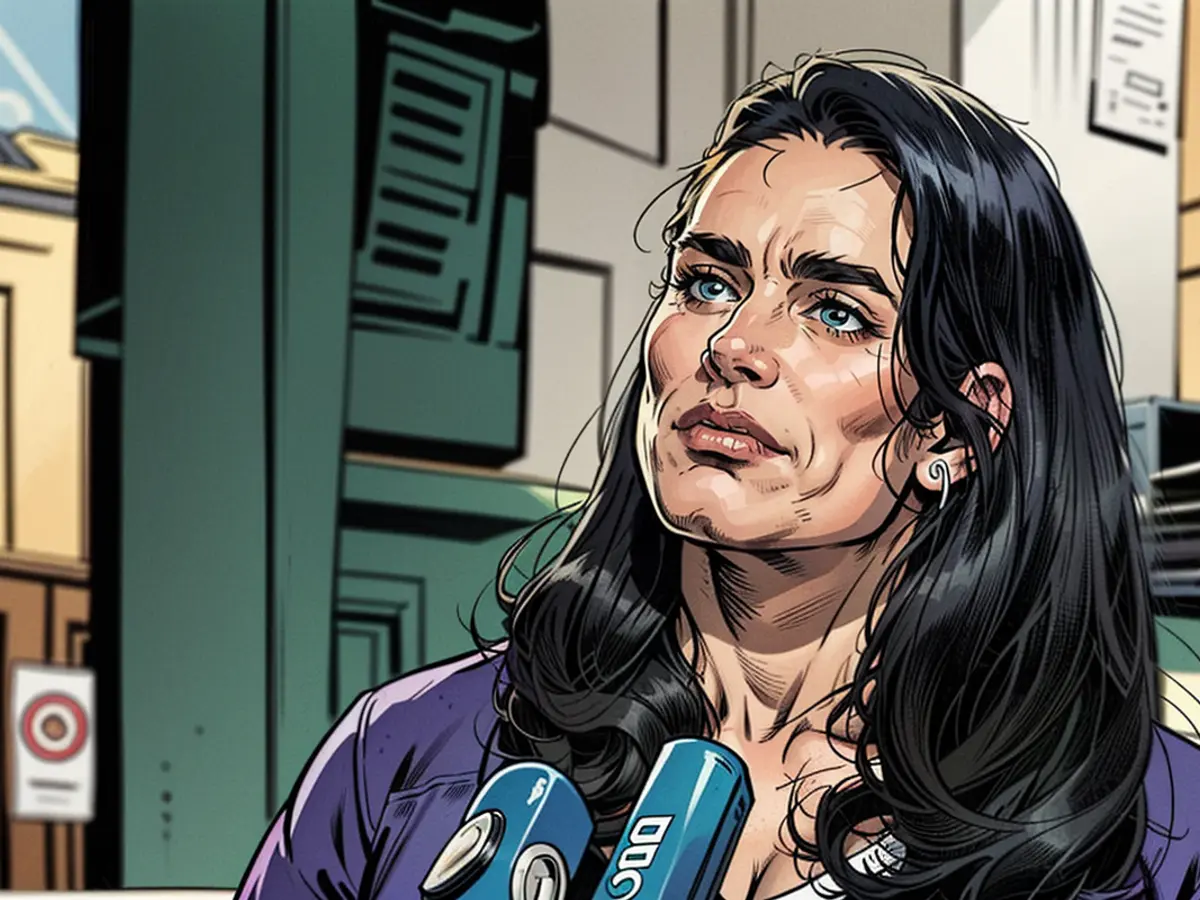Refusing to bear witness to the intentional devastation of Europe
Following the departure of Union members from the joint migration summit with the traffic light coalition, CDU leader Merz indicated a readiness for further negotiations. Nevertheless, the proposal from the CDU remains unacceptable, according to Green Party leader Lang.
The collapsed migration summit on Tuesday may potentially continue under a different composition. This was suggested by CDU General Secretary Carsten Linnemann on ZDF's "Maybrit Illner" on Thursday evening. Earlier on Wednesday, Union's parliamentary group leader Thorsten Frei had hinted at continuing the negotiations, and CDU leader Friedrich Merz made a similar statement on Thursday. However, there's a catch. Merz has set a condition. He seeks to temporarily deny entry to refugees at the border for a three-month trial period. Subsequently, the administrative courts in Germany can assess if they encounter any legal issues.
"Friedrich Merz has now reopened a door that the CDU had shut firmly and loudly on Tuesday," concludes journalist Dagmar Rosenfeld from "The Pioneer." The CDU erred by withdrawing from the migration summit, as the traffic light coalition had made considerable strides to accommodate their viewpoints. The traffic light coalition's revised asylum policy and announcement of nationwide border controls originated from the Union's pressure. Nevertheless, as the opposition leader, Merz held no interest in granting the government a victory before the election in Brandenburg, adds the head of the politics department at "Die Zeit", Tina Hildebrand. Now, it is Merz's responsibility to address the border problem via the political center.
CVU General Secretary Carsten Linnemann proposes a fresh summit, involving only Federal Chancellor Olaf Scholz, his deputies, and Friedrich Merz. The migration issue should be maintained out of the elections, he says. "And if we converse about the border issue and institute a system that only allows entry to the deserving, we'll make a significant leap forward." Linnemann aims to keep the migration debate away from the elections. "We can discuss this issue every day, we can also converse about it after Brandenburg," he suggests. The Union supports the traffic light coalition, provided they propose constructive measures. However, Linnemann expresses concern that "we are not addressing the fundamental problem that an excessive number of people are arriving here, millions in recent years, who are not entitled to do so." Consequently, the CDU advocates for a change in refugee policy.
The traffic light coalition's achievements since the Solingen attack are commendable: tightening of weapons law, increased police powers, and faster deportations, says Federal Minister of the Interior Nancy Faeser. The border controls initiated by the traffic light coalition in October have resulted in the rejection of 30,000 refugees. "The measures are effective," boasts Faeser. She is open to further talks with the Union.
While Faeser is engaging with CDU General Secretary, Green Party leader Ricarda Lang dismisses the Union's proposals. She asserts that refusing refugees is unlawful in the absence of a state of emergency. "Therefore, the CDU's proposal is not genuine, but an illusion," states Lang. The CDU is suggesting a three-month violation of European law. "Germany cannot afford that," she says. Border closures are permitted only if the federal government and the 16 states declare a state of emergency. Lang suggests, "I'd like to see if Markus Söder admits that he can't manage Bavaria." Moreover, Austria and Poland have indicated their reluctance to support Germany in this endeavor. Her apprehensive forecast: "Germany breaks the law, then other partners will too, resulting in chaos." Lang's offer: "We are open to negotiating solutions. However, we are not prepared to witness Europe's intentional destruction."
Federal Justice Minister Marco Buschmann's compromise proposition is rejected by Linnemann. Buschmann suggested a partial border closure at several small border sections. "Then, people will simply cross the green border," says Linnemann. He adheres to the Union's proposal of denying asylum seekers at the border. "I'm convinced that Minister Faeser would be open to this route," he says.
However, she has no intention of pursuing it. Instead, she agrees with Ricarda Lang: "The federal states' reception facilities are presently only half-occupied. This implies they cannot prove that there is a state of emergency." Additionally, there's a practical concern: What would happen to a refugee who is denied entry by Germany and not accepted by the neighboring country? Should they remain stranded between the borders?
Linnemann claims to know the solution, but he does not reveal it.
The traffic light coalition and CDU might revisit the migration summit, as suggested by CDU General Secretary Carsten Linnemann. According to 'The Commission' (which can be understood to refer to the CDU in this context), the migration issue should be discussed outside of election periods to find a suitable solution.








